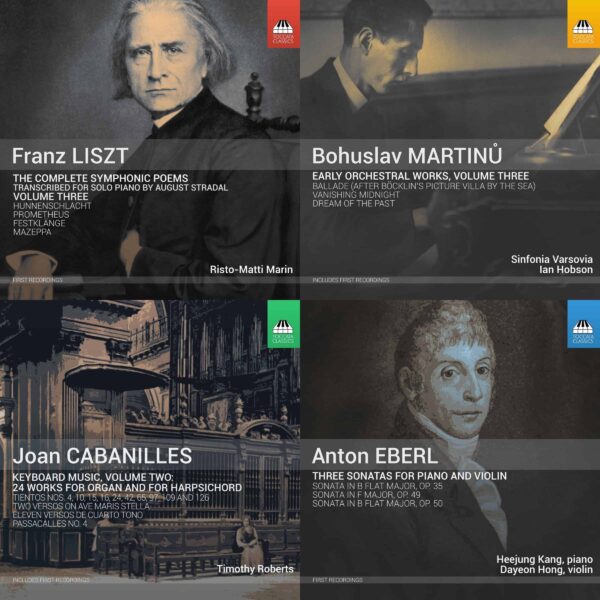Franz Liszt: Songs for Bass Voice and Piano
Throughout Liszt’s long career, his songs – perhaps the most neglected part of his enormous output – took a radical approach to form, eschewing convention in search of a sincere musical response to each text. His free-spirited creativity meant that a single song would often call on a range of stylistic devices, among them bel canto vocal lines, unaccompanied recitative, orchestrally conceived piano textures and audacious harmonic procedures. This first recording of Liszt songs by a bass voice brings out both the power and poetry of his remarkable imagination.
Jared Schwartz, bass
Mary Dibbern, piano
Listen To This Recording:
- Weimars Volkslied (c. 1853; Cornelius)*
- Pace non trovo (1843–44, rev. 1864;
Petrarch, Sonnet No. 104) - Des Tages laute Stimmen schweigen (1880; von Saar)
- J’ai perdu ma force et ma vie (1872; de Musset)
- Jeanne d’Arc au bucher (c. 1840–45; Dumas père)
- Sei still (1877; von Schorn)
- Le Juif errant (1848; de Béranger)
- Über allen Gipfeln ist Ruh’ (1849; Goethe)
- O lieb, solang du lieben kannst! (c. 1842–50; Freiligrath)
- Du bist wie eine Blume (1843–late 1850s; Heine)
- Go not, happy day (1879; Tennyson)
- Weimars Toten — Dithyrambe (1849; von Schober)
*FIRST RECORDING
FIRST RECORDINGS BY A BASS VOICE





MusicWeb International :
‘These are detailed, very well thought through but also spontaneous-sounding performances – in which, by the way, Mary Dibbern emerges as every bit as fine a pianist as she is an annotator. […] as for example in ‘Über allen Gipfeln ist Ruh’’, perhaps the single best performance on the disc. […]
both Schwartz and Dibbern emerge as serious, highly intelligent and sophisticated artists of no little resource and versatility. […] they have done Liszt and lovers of his songs a very considerable service in opening him up to all basses, present and future.’
—Nigel Harris, MusicWeb International
Gramophone :
‘Schwartz’s tone sometimes acquires a pulse in his middle registers but the intensity and emotional range of his singing are consistently compelling.’
—Tim Ashley, Gramophone